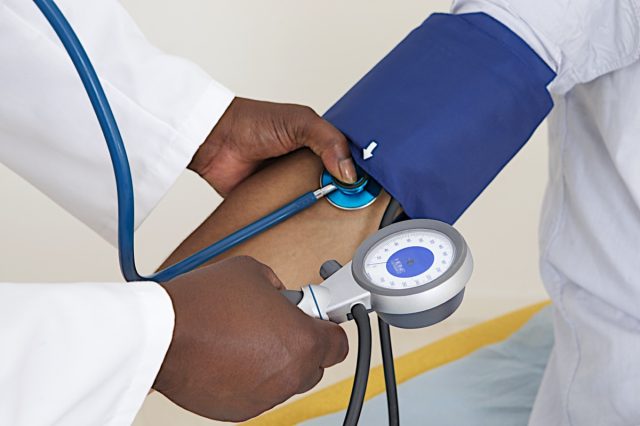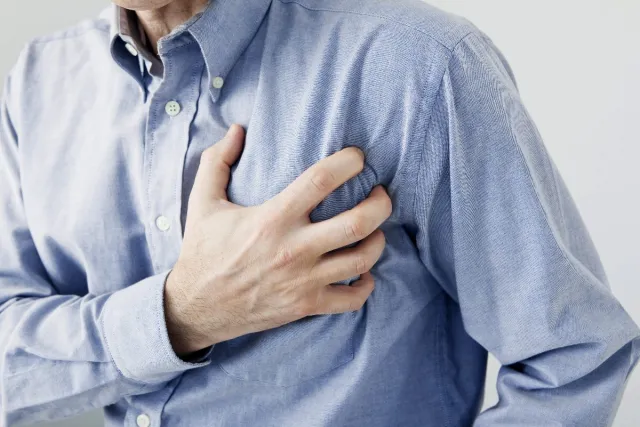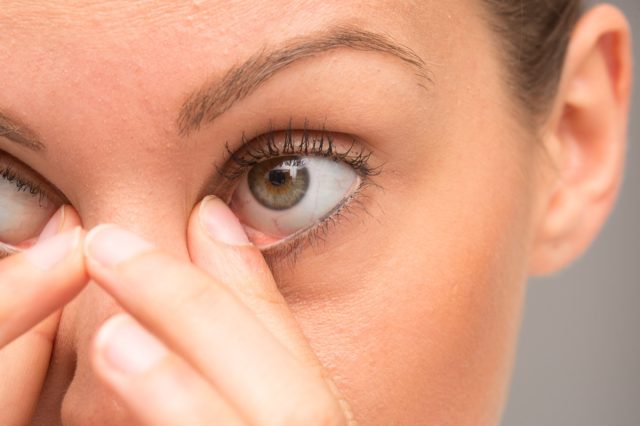High blood pressure or hypertension causes the heart to work harder to pump blood and can lead to serious health issues if left untreated like heart attack, stroke and more. Although hypertension is a common condition–an estimated 116 million U.S. adults, according to the Centers for Disease Control and Prevention, the risk can be greatly reduced by working out 150 minutes a week, not smoking, limiting alcohol intake, eating a healthy diet and getting enough sleep. High blood pressure can happen without any symptoms, but there can be alarming indications that you should have it checked. Eat This, Not That! Health spoke with Sean Marchese, MS, RN, a registered nurse at The Mesothelioma Center with a background in oncology clinical trials and over 20 years of direct patient care experience who shares three worrisome warning signs not to overlook.
What to Know About Blood Pressure

Marchese explains, "Blood pressure is a "silent killer." There are very few noticeable signs of blood pressure. Most people with high blood pressure experience no symptoms until they enter a "hypertensive crisis," where severe high blood pressure can be fatal. Some people may experience headaches, nosebleeds or vision changes and associate them with blood pressure changes. However, these are not reliable signs. The only way to know if you have high blood pressure is to measure it."
This Number is Considered Not Normal Blood Pressure

Marchese tells us, "Doctors diagnose hypertension when, over multiple readings, systolic blood pressure (the first number and indicator of pressure during a heartbeat) is greater than or equal to 140 mm Hg and diastolic pressure (the second number which indicates the pressure at rest) is greater than or equal to 90 mm Hg."
Coronary Artery Disease

According to Marchese, "One of the major complications of high blood pressure is damage to the arteries that supply blood to the heart. Coronary artery disease caused by hypertension leads to narrow and damaged vessels, which can cause chest pain (angina), palpitations or heart attack. In severe cases, this strain on the heart can lead to heart failure."
Kidney Damage

"The kidneys use delicate cells to filter excess fluid, toxins and waste from the blood," Marchese says. "The increased pressure from hypertension can damage these sensitive organs. Hypertension-induced kidney damage can promote scar tissue, further preventing efficient waste filtration from the blood. If left untreated, high blood pressure can cause kidney failure leading to toxic levels of waste in the blood, which may require dialysis or a kidney transplant."
Eye Damage

Marchese shares, "Like the kidneys, the eyes contain many small and delicate cells and blood vessels easily damaged by hypertension. When high pressures damage the retina, they cause retinopathy characterized by bleeding in the eye and loss of vision. Diabetes is a risk factor that can significantly increase the chances of hypertension-induced retinopathy. High blood pressure can also cause fluid to accumulate under the retina, leading to distorted vision or blind spots caused by scar tissue. In severe cases, hypertension can damage the optic nerve and cause irreversible vision loss."